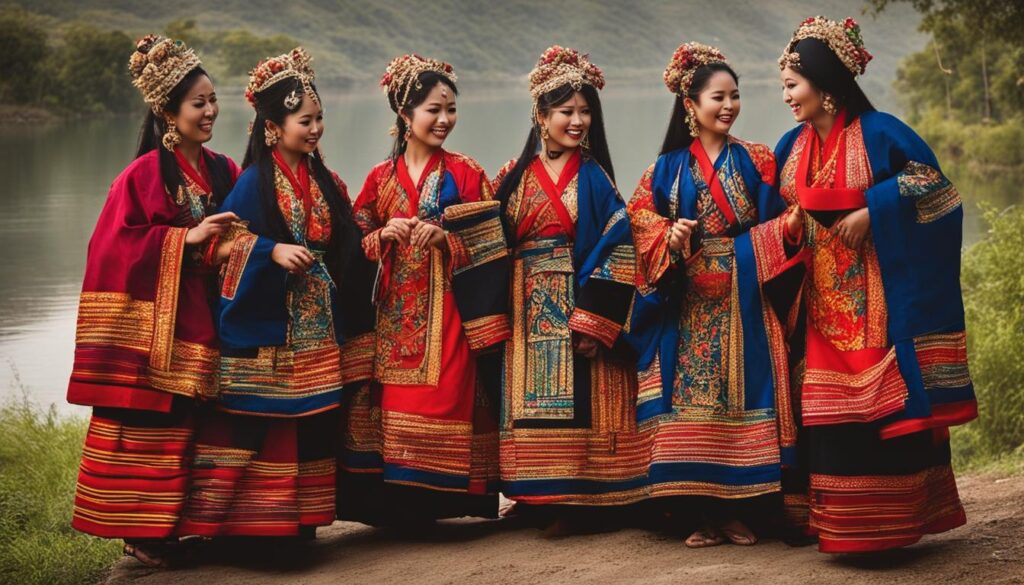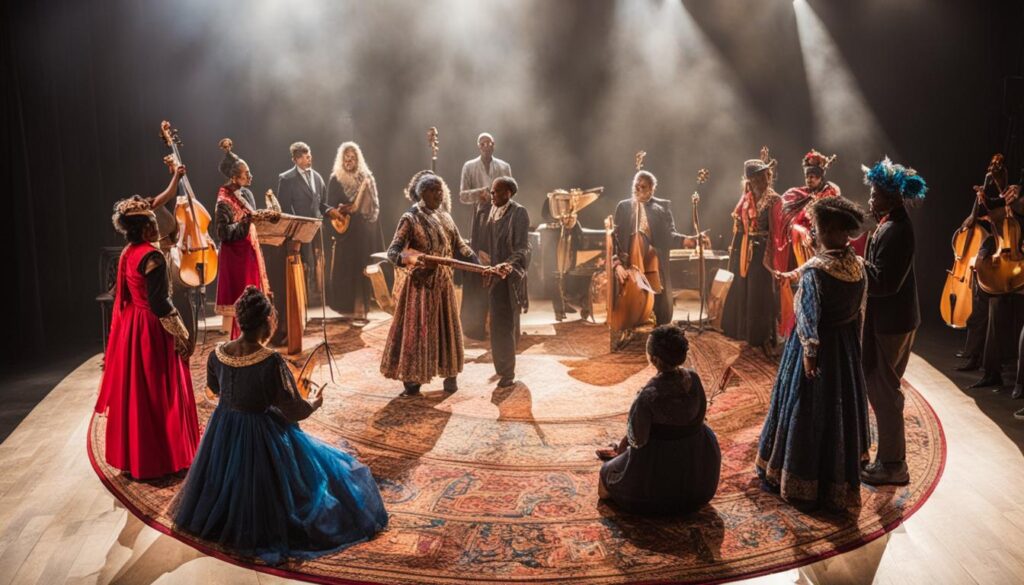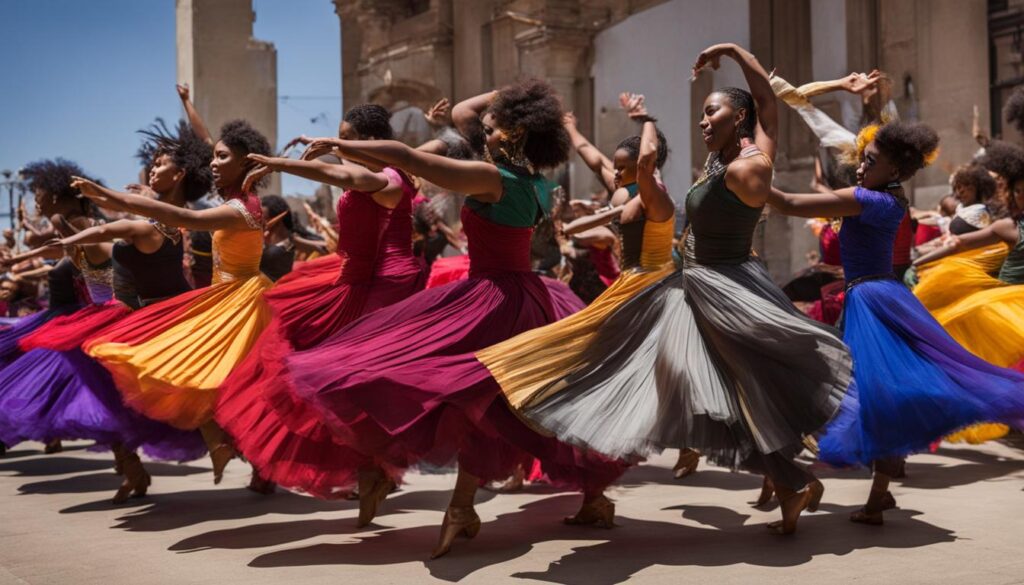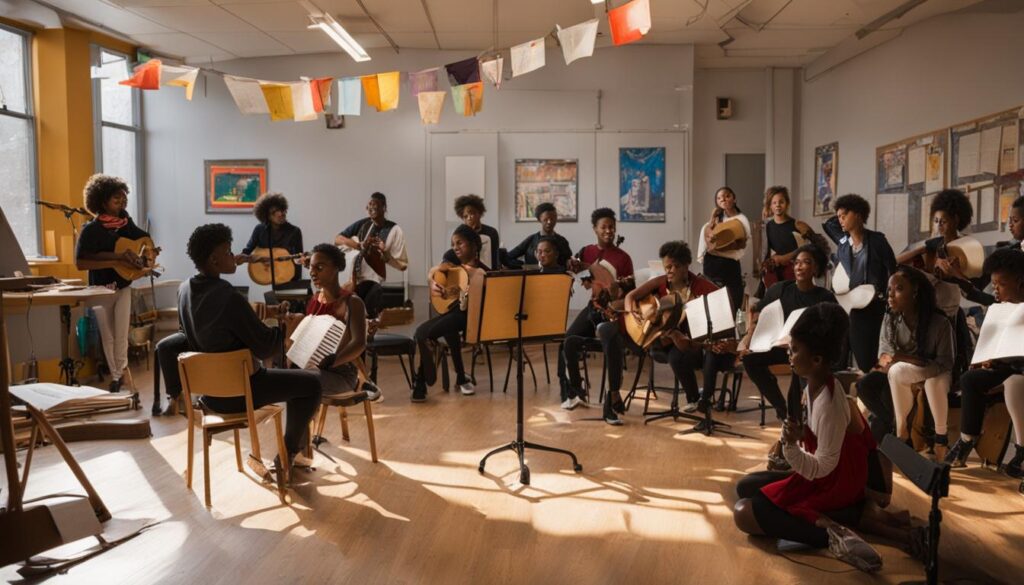As an avid lover of the arts, I have always wondered about the significance of performing arts and their impact on society. What is it about music, theater, dance, and other forms of artistic expression that resonates so deeply with us? Join me as we delve into the role of performing arts in society, exploring their benefits, contributions, and the meaningful connections they foster.
Key Takeaways:
- The performing arts serve multiple purposes in society, including self-expression, communication, cultural preservation, and community building.
- They play a significant role in emotional expression, allowing individuals to convey complex thoughts, feelings, and experiences.
- Performing arts have a historical significance, reflecting the beliefs, values, and progression of different cultures.
- Engaging in the performing arts promotes personal growth, self-discovery, and fosters empathy.
- Performing arts contribute to education, enhancing critical thinking, creativity, and cultural understanding among students.
Art and Emotion: Expressing Feelings and Thoughts
Art, including performing arts, provides a unique platform for individuals to express their emotions and thoughts in a creative and impactful way. Whether through painting, music, dance, or theater, artists can convey complex emotions and perspectives that may be challenging to articulate verbally. This emotional expression not only allows artists to find catharsis and release, but it also evokes emotions in the audience, creating a deep and meaningful connection.
Artistic expression invites empathy and understanding, enabling individuals to step into the shoes of others and gain a greater appreciation for diverse experiences. Through art, we can explore the depths of human emotions and connect with universal truths. As the famous painter Pablo Picasso once said, “Art washes away from the soul the dust of everyday life.” This quote speaks to the transformative power of art, as it has the ability to transport us to a different realm where we can experience and process our own feelings and thoughts.
“Art washes away from the soul the dust of everyday life.” – Pablo Picasso
Art, including performing arts, has the capacity to tap into our innermost emotions, allowing us to express ourselves authentically and deeply. It serves as a vessel for self-reflection, enabling us to confront and make sense of our feelings and thoughts. Through the medium of art, we can communicate what may be difficult to put into words. This emotional connection through art has the power to bridge gaps, foster empathy, and create a shared understanding of the human experience.


| Expression of Feelings and Thoughts | Emotional Connection through Art |
|---|---|
| Art allows individuals to convey complex emotions and perspectives that may be challenging to articulate verbally. | Art evokes emotions in the audience, creating a deep and meaningful connection. |
| Artistic expression invites empathy and understanding, enabling individuals to step into the shoes of others and gain a greater appreciation for diverse experiences. | Art serves as a vessel for self-reflection, enabling individuals to confront and make sense of their feelings and thoughts. |
| Art has the power to bridge gaps, foster empathy, and create a shared understanding of the human experience. |
Cultural Significance: Connecting Communities and Preserving Heritage
The performing arts play a crucial role in connecting communities and preserving cultural heritage. Through various artistic mediums such as music, dance, theater, and storytelling, performing arts provide a platform for communities to come together, celebrate their traditions, and strengthen social bonds.
Performing arts events, performances, and festivals are opportunities for individuals to connect with their roots, honor their cultural heritage, and foster a sense of pride and unity. These events allow community members to showcase their talents, share their stories, and pass down cultural knowledge from one generation to the next. They serve as a powerful tool for cultural transmission, ensuring that traditions and customs are not lost or forgotten.
The role of performing arts in the community goes beyond preservation. They also serve as a catalyst for social change and dialogue. Through artistic expression, individuals can raise awareness about important social issues, challenge societal norms, and promote inclusivity. The performing arts provide a safe space for people to express their thoughts and emotions, sparking meaningful conversations and inspiring positive change in society.
| Benefits of Performing Arts in the Community |
|---|
| Strengthening social bonds |
| Preserving cultural heritage |
| Promoting inclusivity and diversity |
| Inviting dialogue and raising awareness |
| Fostering a sense of belonging and identity |
The performing arts have the power to bring people together, bridge differences, and create a sense of belonging. They contribute to the fabric of society by connecting individuals, preserving cultural heritage, and fostering social cohesion. By recognizing and supporting the cultural significance of performing arts, we can ensure that these art forms continue to thrive and enrich our communities for generations to come.


Education and Personal Growth: Unlocking Creativity and Development
When it comes to education, the impact of performing arts cannot be overstated. The inclusion of performing arts in school curricula provides students with a unique avenue for personal growth and development. Through engaging in various art forms such as music, dance, theater, and visual arts, students not only acquire new skills but also cultivate their creativity and critical thinking abilities.
Participating in performing arts activities encourages students to think outside the box and explore innovative solutions. They learn to approach problems from different angles, fostering a mindset that values creative expression and originality. By experimenting with different artistic techniques and styles, students develop the confidence to take risks and embrace their individuality.
The performing arts also offer a space for self-discovery and self-expression. Through the creative process, students learn to communicate their thoughts, feelings, and experiences in a meaningful way. This not only enhances their ability to express themselves verbally but also instills a sense of empathy and understanding towards others. The performing arts serve as a bridge between individuals, fostering connections and promoting a sense of community.
Furthermore, engaging in performing arts helps students develop cultural and historical understanding. By exploring different art forms and studying the works of artists from diverse backgrounds, students gain insights into various cultures, traditions, and perspectives. This exposure broadens their worldview and enables them to appreciate and respect the richness of human diversity.


The Impact of Performing Arts in Education
The educational benefits of performing arts extend beyond the classroom. Research has shown that students who engage in performing arts tend to have higher academic achievement and improved cognitive abilities. They develop better problem-solving skills, enhanced memory retention, and improved concentration. The performing arts also provide a platform for developing social skills, teamwork, and leadership qualities, as students collaborate with their peers and work towards a common goal.
“Performing arts education not only enhances creativity and critical thinking but also nurtures empathy and self-confidence in students.”
In conclusion, incorporating performing arts into education is essential for unlocking the full potential of students. It cultivates creativity, critical thinking, and cultural understanding, while also fostering personal growth and well-being. By embracing the power of performing arts in education, we provide a holistic learning experience that prepares students for success in an ever-evolving world.
| Benefits of Performing Arts in Education | Examples |
|---|---|
| Enhanced creativity | Students explore their artistic talents and experiment with different forms of expression. |
| Improved critical thinking | Through analyzing and interpreting works of art, students develop analytical and problem-solving skills. |
| Increased cultural understanding | Exposure to diverse art forms promotes empathy and appreciation for different cultures. |
| Boosted self-confidence | Performing in front of others builds self-esteem and self-assurance. |
Conclusion
The performing arts hold great significance in society, making a profound impact on individuals and communities. They serve as a platform for emotional expression, allowing us to delve into the depths of our thoughts and feelings. Whether through music, dance, theater, or other art forms, performing arts create a strong connection between the artist and the audience, evoking powerful emotions and fostering empathy.
Furthermore, performing arts play a crucial role in preserving cultural heritage and connecting communities. They serve as a means of transmitting traditions, values, and expressions from one generation to another. Through performances and artistic events, communities come together to celebrate their heritage, foster a sense of belonging, and establish a shared identity.
Performing arts also have a significant impact on education and personal growth. They nurture creativity, critical thinking skills, and cultural understanding among students. Engaging in performing arts activities enables individuals to unlock their creative potential and explore their own unique expressions. Moreover, the arts contribute to personal growth, providing avenues for self-expression, exploration, and development.
In conclusion, the performing arts have a multifaceted role in society. They enhance our understanding of the human experience, promote social cohesion, and inspire personal and societal growth. The significance and impact of performing arts cannot be overstated, as they contribute to a more inclusive, vibrant, and culturally rich society.
FAQ
What is the purpose of performing arts in society?
Performing arts serve multiple purposes in society, ranging from self-expression and communication to cultural preservation and community building. They play a significant role in emotional expression, allowing individuals to convey thoughts, feelings, and experiences that may be difficult to put into words. The performing arts also have historical significance, documenting the progression of societies and reflecting the beliefs and values of different cultures. Additionally, the creative process involved in performing arts offers personal growth and self-discovery opportunities for artists. Through the performing arts, individuals can connect with others, foster empathy, and promote social cohesion.
How do performing arts express emotions and thoughts?
Art, including performing arts, provides a unique platform for individuals to express their emotions and thoughts in a creative and impactful way. Whether through painting, music, dance, or theater, artists can convey complex emotions and perspectives that may be challenging to articulate verbally. This emotional expression not only allows artists to find catharsis and release, but it also evokes emotions in the audience, creating a deep and meaningful connection. Artistic expression invites empathy and understanding, enabling individuals to step into the shoes of others and gain a greater appreciation for diverse experiences.
What role do performing arts play in community and culture?
Performing arts have a profound impact on culture and community. They serve as a means of communication, transmitting and preserving cultural values, traditions, and expressions. Performing arts play a vital role in community building, strengthening social bonds, and establishing a sense of identity and belonging. They provide a platform for celebrating and sharing cultural heritage, ensuring that it is passed down from generation to generation. Through performances, festivals, and other artistic events, communities come together to honor their traditions, connect with their roots, and foster a sense of pride and unity.
How do performing arts contribute to education and personal growth?
Performing arts play a crucial role in education, offering unique opportunities for learning and personal growth. They enhance critical thinking skills, problem-solving abilities, and visual literacy. Through participating in performing arts activities and studying various art forms, students can develop their creativity and expressiveness. Performing arts also foster cultural and historical understanding, exposing individuals to diverse perspectives and enhancing their ability to relate to others. Moreover, engaging in performing arts contributes to personal growth and well-being, providing avenues for self-expression, exploration, and development.
What is the overall significance of performing arts?
Performing arts hold a significant place in society, serving multiple purposes and contributing to the overall well-being and development of individuals and communities. They provide a means of emotional expression, foster empathy and connection, preserve cultural heritage, and promote social cohesion. The performing arts also have a profound impact on education, cultivating creativity, critical thinking, and cultural understanding among students. In conclusion, the purpose of performing arts in society is to enhance our understanding of the human experience, foster connections, and inspire personal and societal growth. Through the performing arts, we can explore the depths of our emotions, celebrate our diverse cultures, and create a more inclusive and vibrant society.

